If you’ve used Bing Webmaster Tools in the past but haven’t logged in recently, it’s time for you to take a peek under the hood.
Check out this quick refresher of the new Webmaster Tools interface to help you optimize for better rankings on Bing.
Last February, we unveiled the new Bing Webmaster Tools user interface with a set of tools we transitioned from the existing Bing Webmaster tools platform.
We transitioned to offer a faster, cleaner, responsive version of existing tools (yes, the new Bing Webmaster Tools is mobile-friendly) and to release a new set of actionable and upgraded tools for SEO professionals and webmasters.
We expect the migration to be completed in the next few months, maybe even as quickly as by July 2020.
How do you see the new webmaster tools? It’s accessible at https://www.bing.com/webmasters or you can access it via the hyperlinks within the reports that have already been migrated.
Let’s review the new and updated features.
Backlinks Is Back – Including for Other Domains!
Thirteen years after removing the syntax feature from Search, we are pleased to offer this feature within the webmaster tools portal to provide visibility for webmasters.
The Backlinks report contains a count of referring pages, referring domains, and anchor texts for the full backlink profile detected by Bing for your site, allowing to list URLs per Domains, Pages, and Anchor texts.
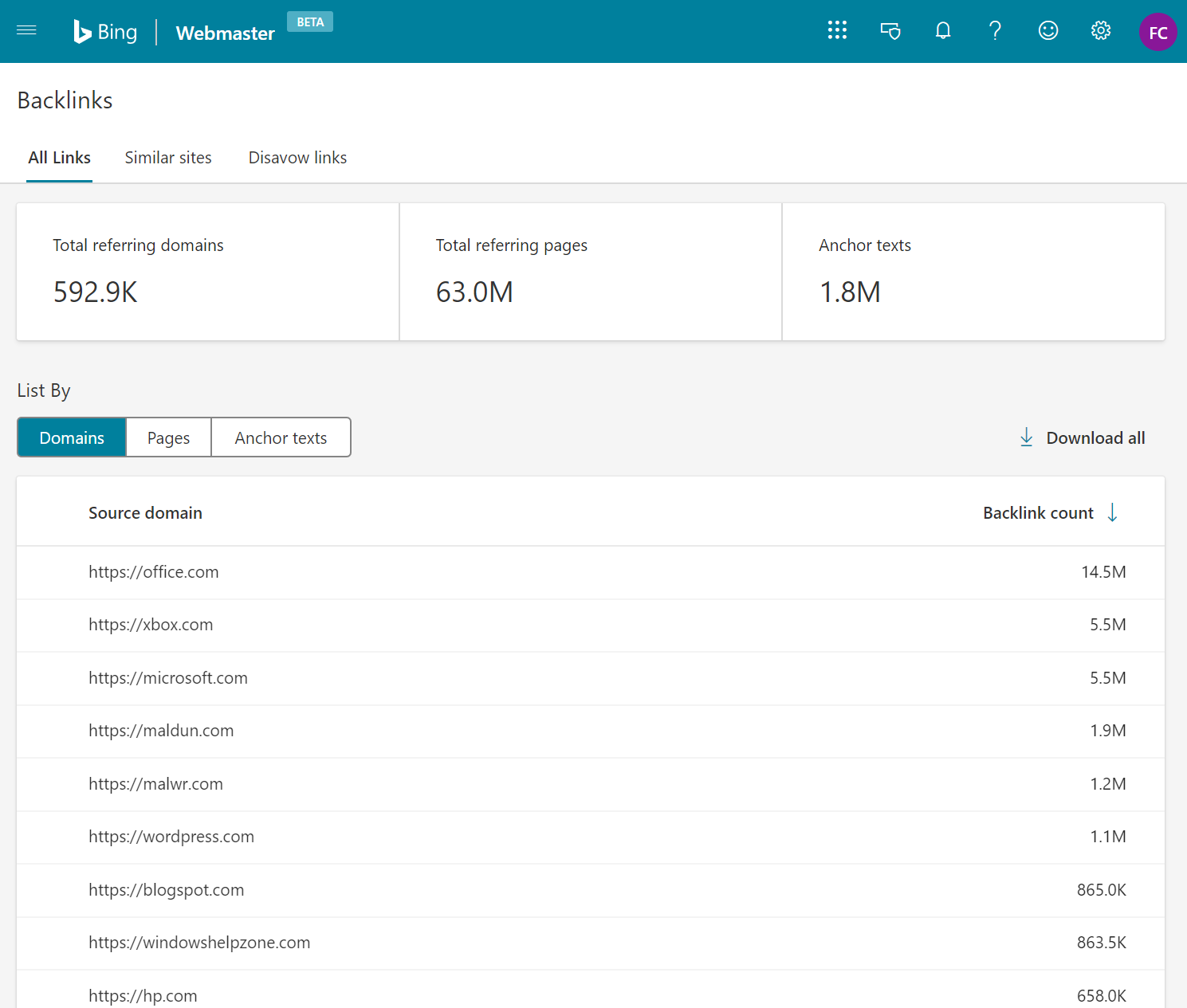
We offer also the ability to compare your site with other sites with the Similar Sites features, with a list of suggested sites by Bing, or the site you select allowing to have visibility to who is linking to whom.
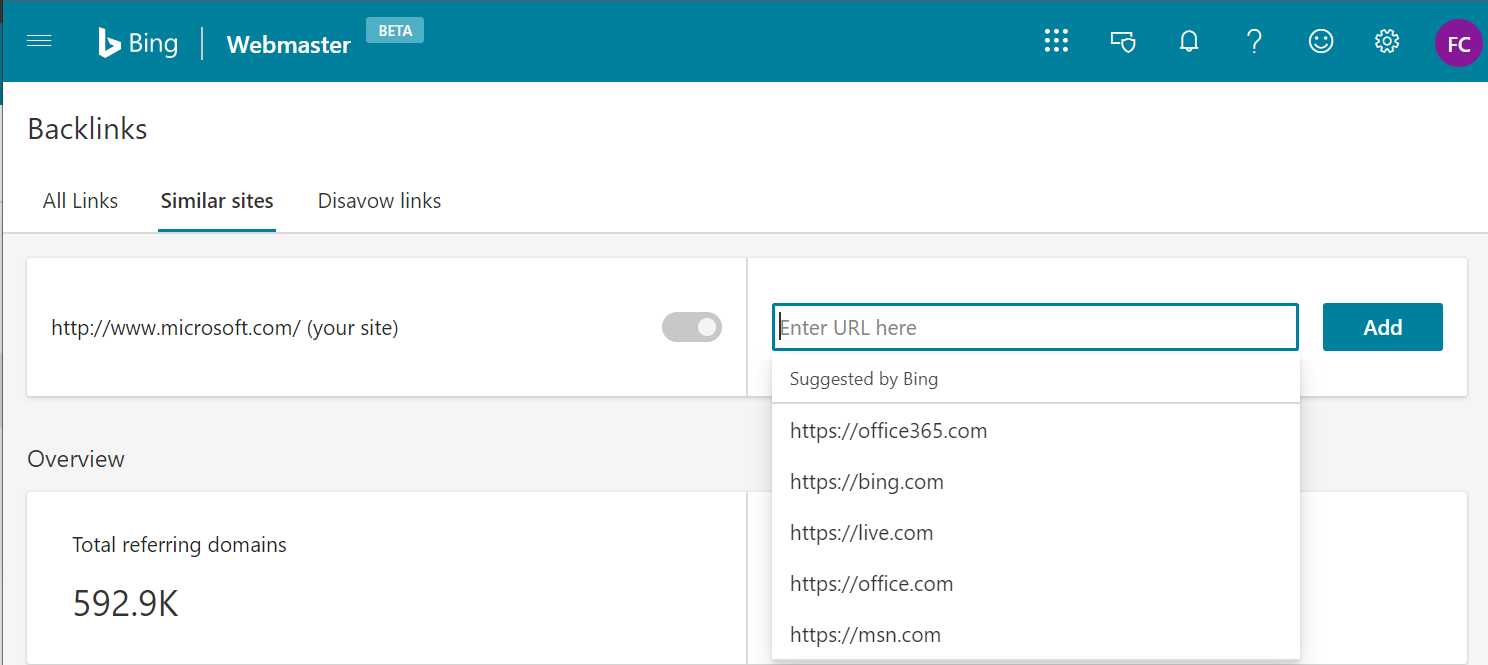
Here is an example comparing the backlink profile of docs.microsoft.com to support.microsoft.com.
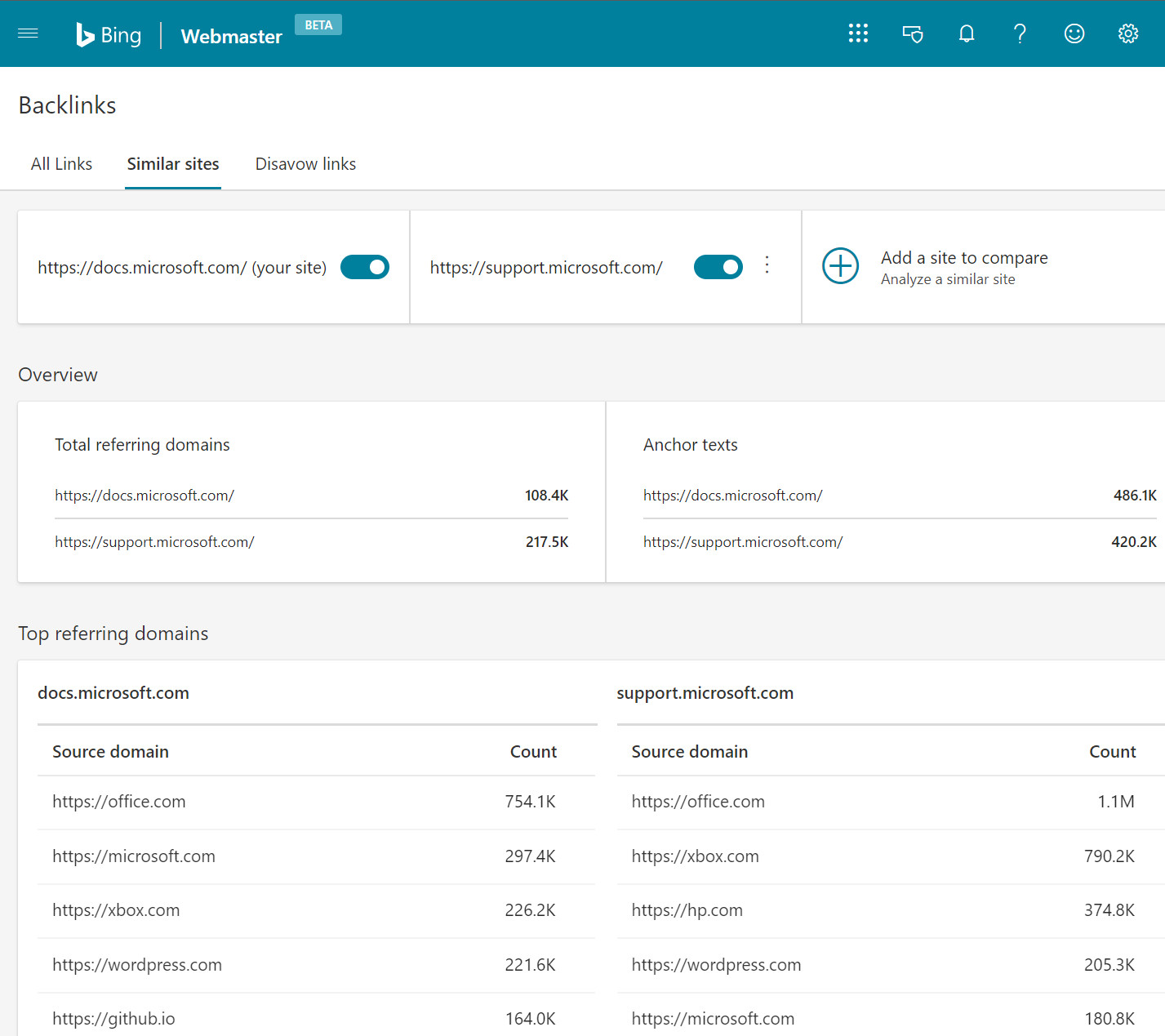
Keyword Research Tool – Enhanced
This tool helps you research the keywords and phrases searchers are querying on Bing.
Keyword Research helps you determine what content to produce.
In this release, we offer you the ability to see query trends and the volume so you can determine if there are enough people searching on the keywords with the ability to filter by country and region, as well as by language and devices.
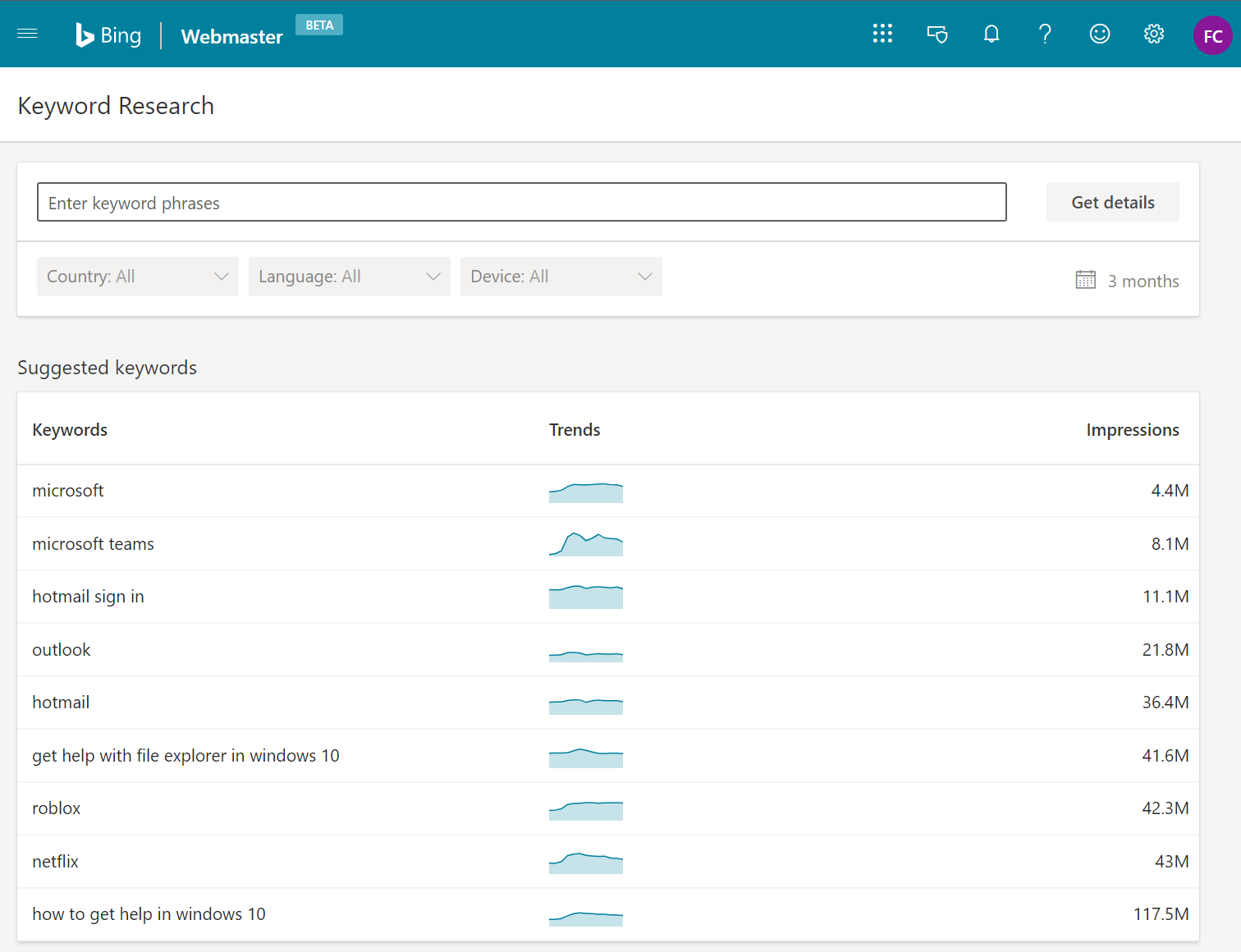
As you drill into the research you there is useful information to help understand trends around query volume by country, related keywords, and the top ranking domains for the query.
This can help you investigate who is ranking, why you might not be ranking as high as you want, and help you determine the level of work that you’ll need to do to be ranked for your desired keyword.
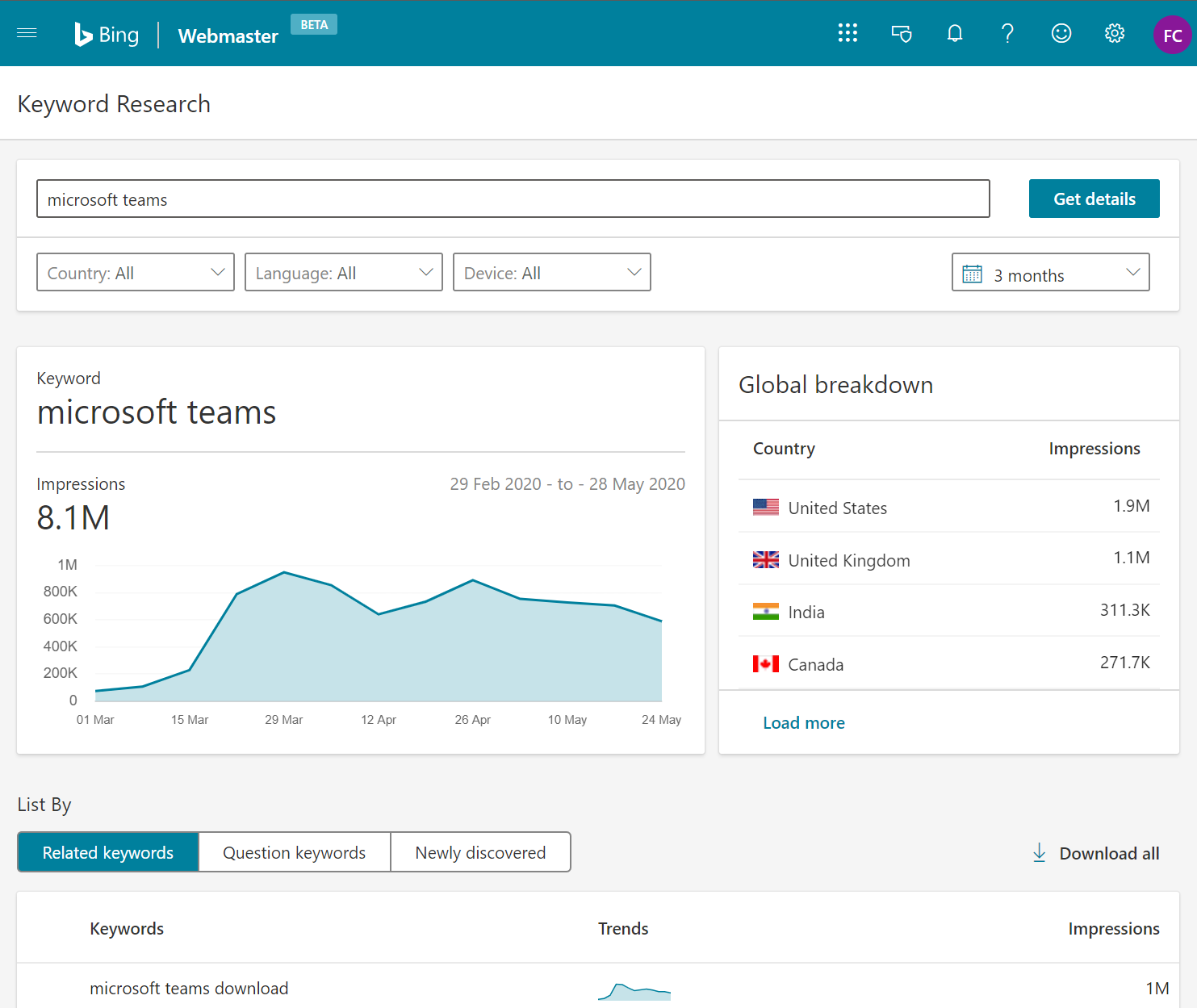
URL Submission Now Automated
URLs submission is a leading Bing Webmaster Tool feature.
It allows webmasters to instantly index their website content on Bing by submitting their new or updated content via this web interface for up to 10,000 URLs per day.
But no need to go to Bing Webmaster Tools each time a page is added or updated.
Webmasters can automate publication via Bing Webmaster Tools URLs submission API which is an easy-to-plug API solution for most content management systems.
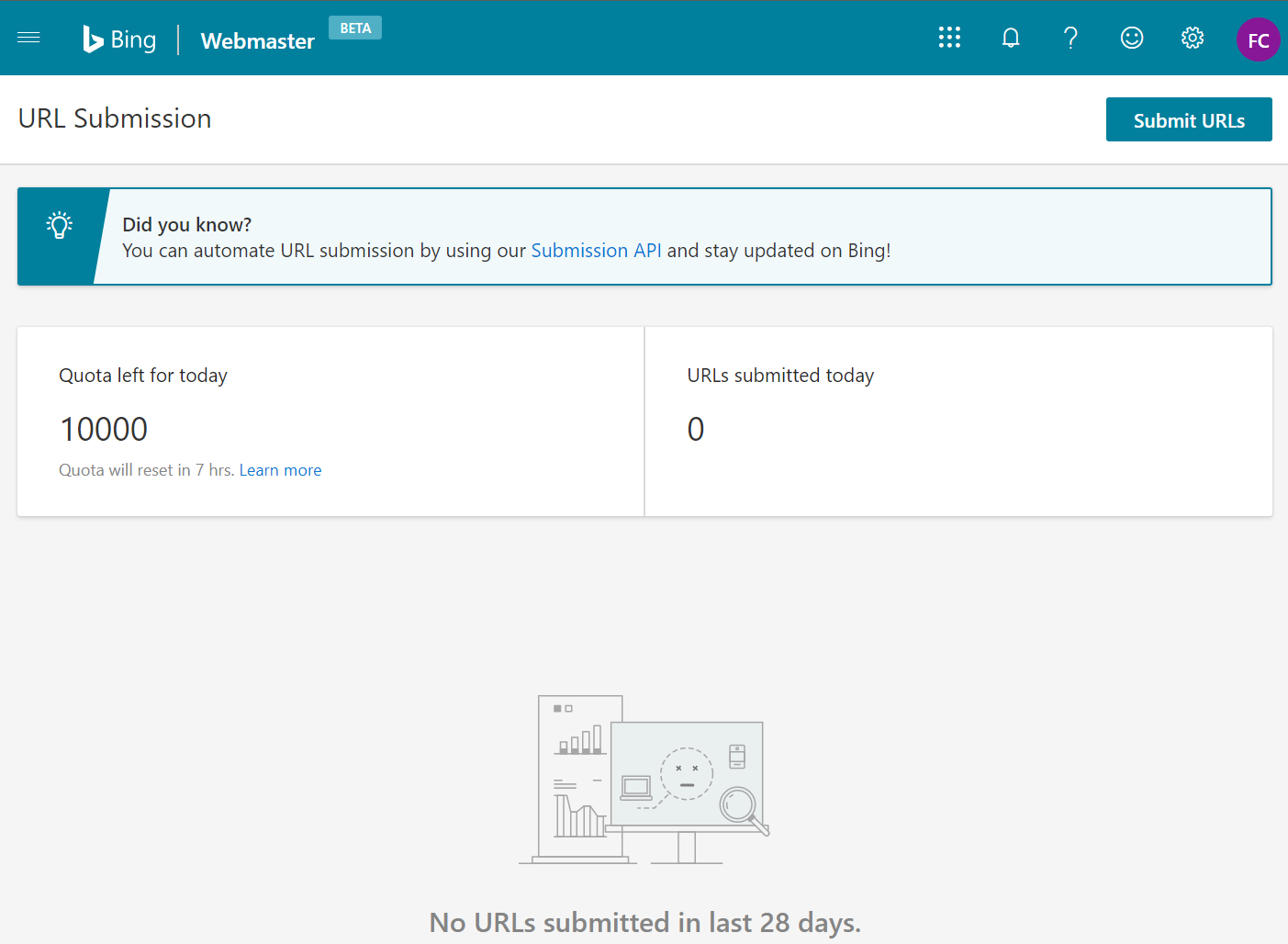
Sitemaps
Sitemaps is the other best way to tell Bing about URLs on your site that would be otherwise hard to discover by our web crawler, we suggest to update your sitemaps at least once a day.
You just need to submit once in Bing Webmaster Tools and then visit often to get statistics.
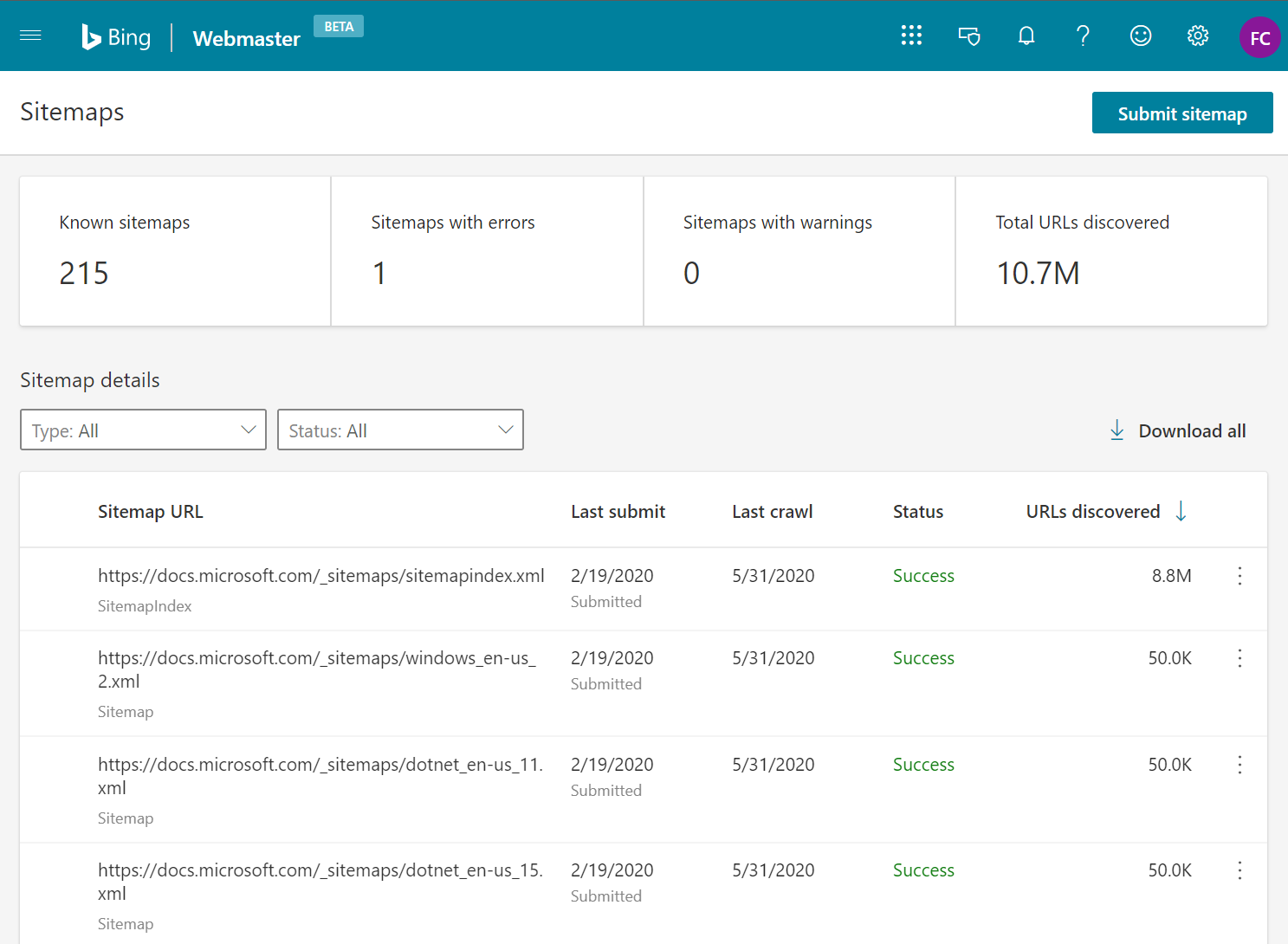
Search Performance – Improved
This dashboard offers overview chart displays the trends in the Total Clicks, Total Impressions, Average Click-Through Rate (CTR) and Average position for your website for up to past 6 months and the keywords from organic, non-paid search which are driving traffic to your site with key metrics Impressions, Clicks, Click Through Rate (CTR), and Average Position.
What’s new?
We’ve used modern web controls allowing one to easily display graphs, sort tables, and export tables to a CSV.
The Average Click-Through Rate (CTR) and Average position are also now provided.
CTR is per keyword the percentage of impressions that resulted in the user clicking on any page of your website and Average Position is the average of the different positions on which any page of your website appeared for the selected keyword.
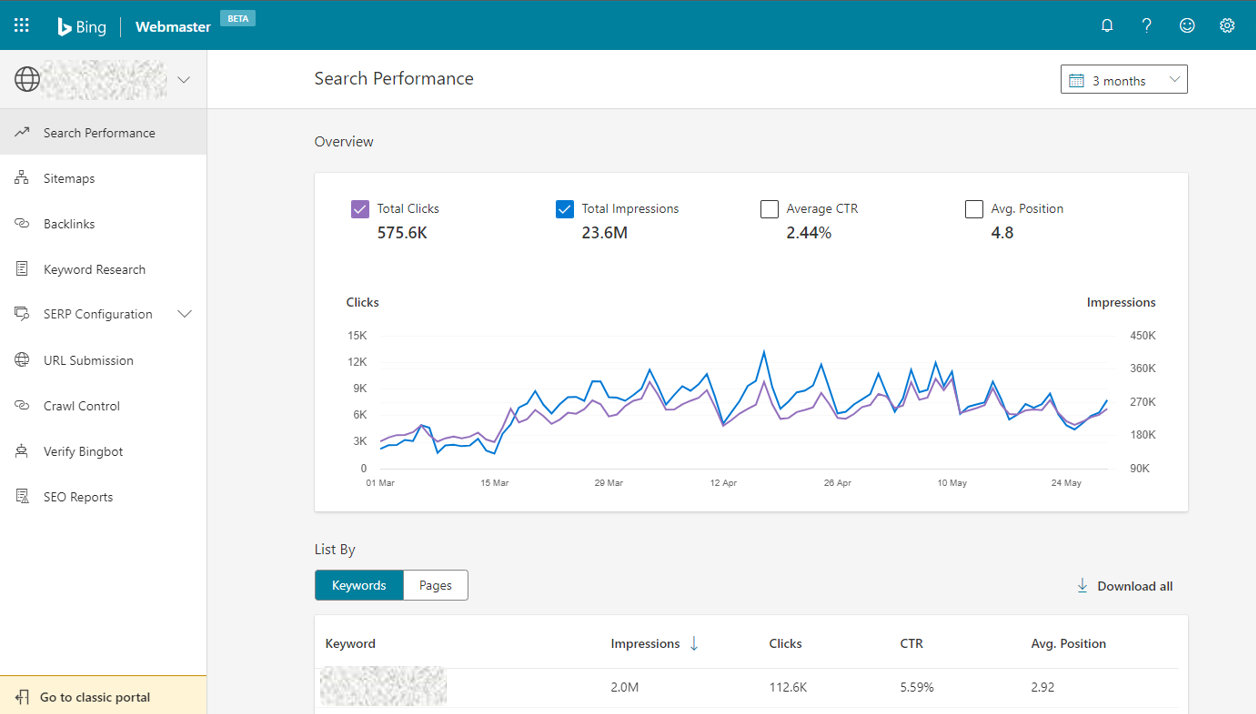
Crawl Control
This tool allows you to boost or slow down Bingbot’s crawling frequency for all hours of the day or specific hours.
You decide based on who and when customers and search engine bots are visiting your website.
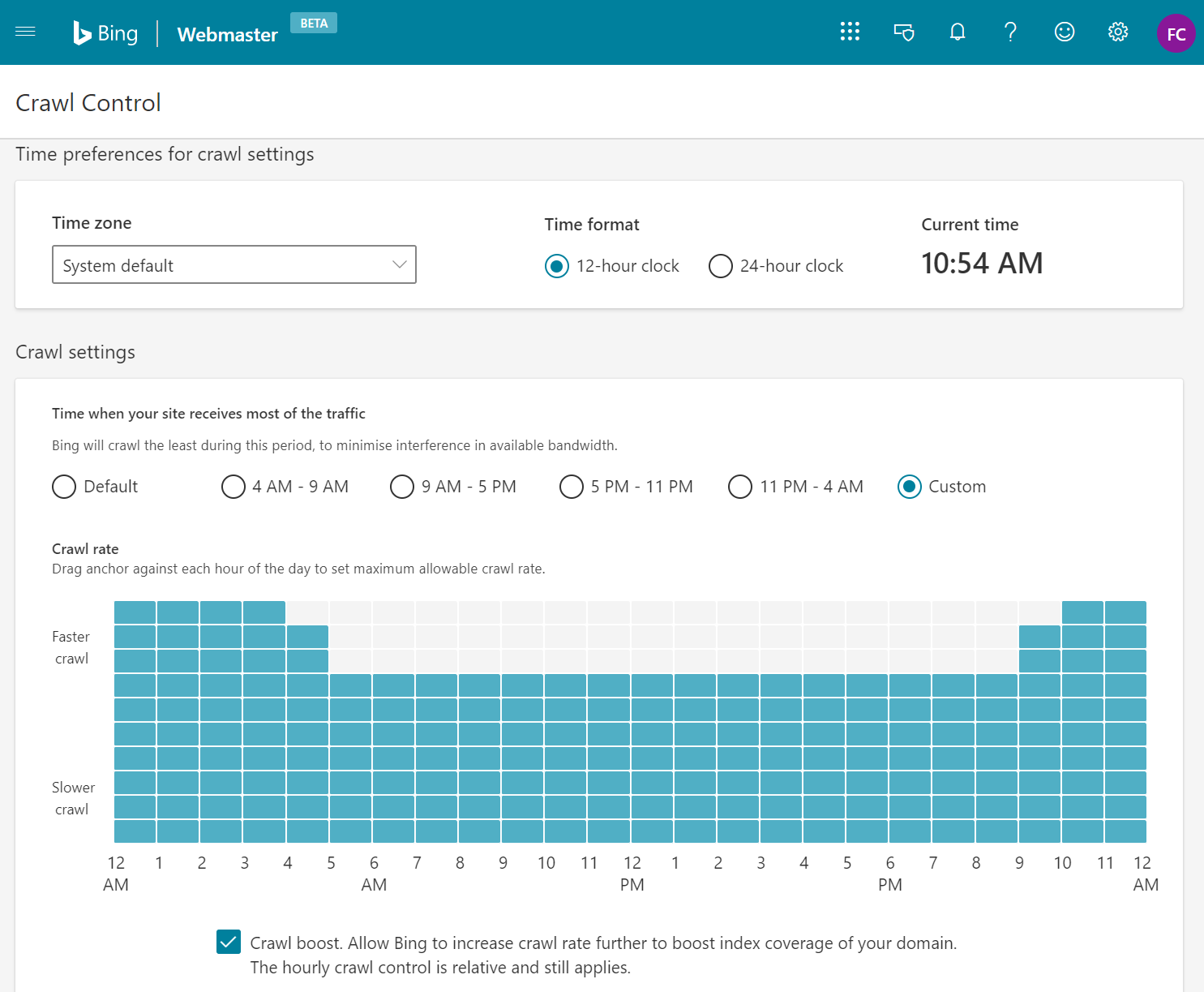
Verify Bingbot
There are many fake bots on the internet mimicking search engines.
If you detect a search engine crawler crawling you too much, the first action is to verify if this “search engine” is a real one.
The Verify Bingbot tool allows you to check if the IP address you see in your log is the real Bingbot.
If not, you can block it.
If it is, and you want to adjust the crawl rate, then you can in the Crawl Control settings.
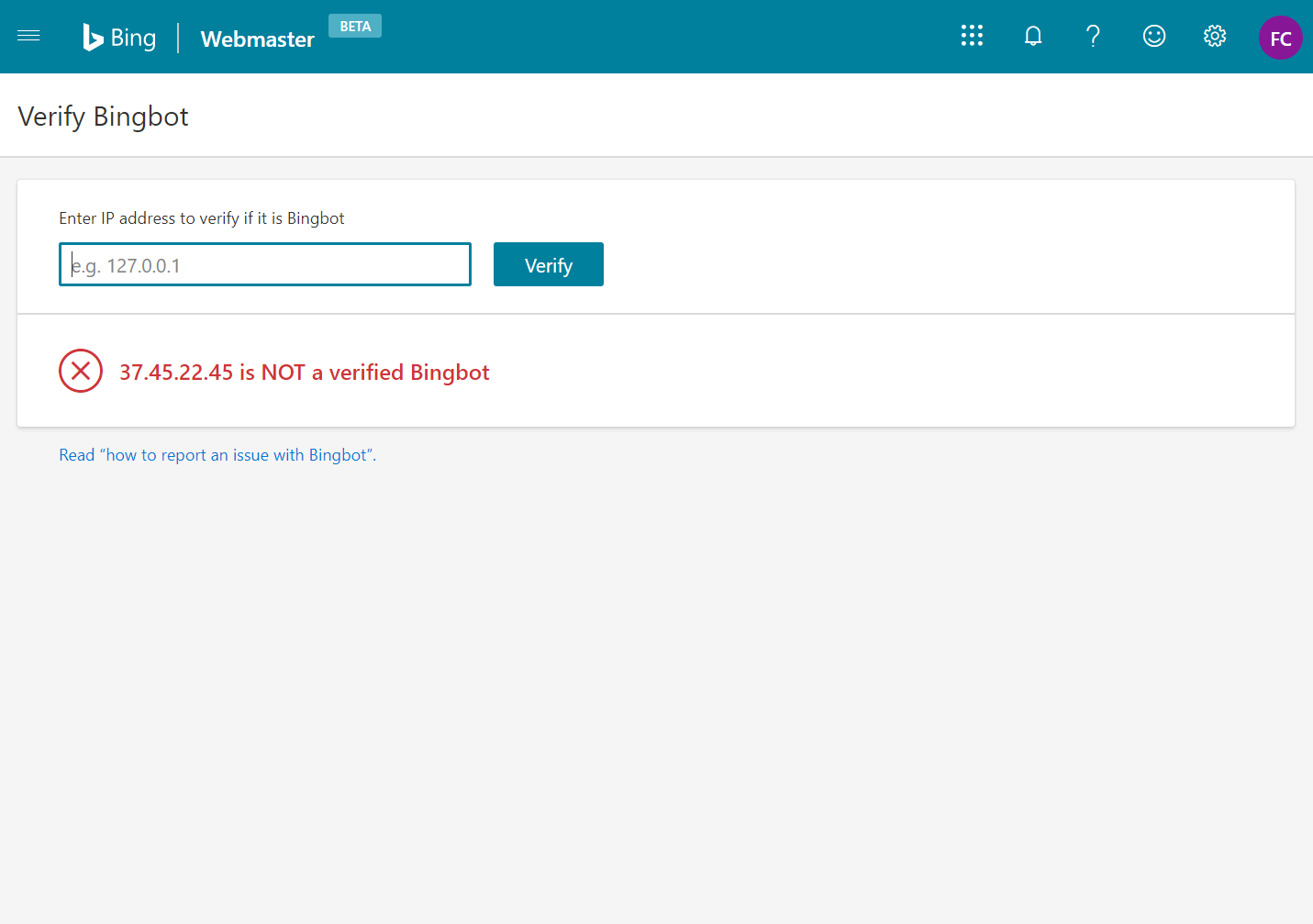
Block URLs
The best way to block a URL is to add a noindex tag and let Bingbot discover it.
That said, we recognize that in some cases, you may want to quickly remove content from Bing.
The Block URL tool allows you to do this in just a few hours.
All you need to do is need to enter an URL or a directory, and the content will be removed from Bing shortly thereafter for up to 90 days.
After 90 days, the content will reappear in the search results.
You can also choose to either renew the block or let it expire.
The tool allows you to review your previous submissions as well.
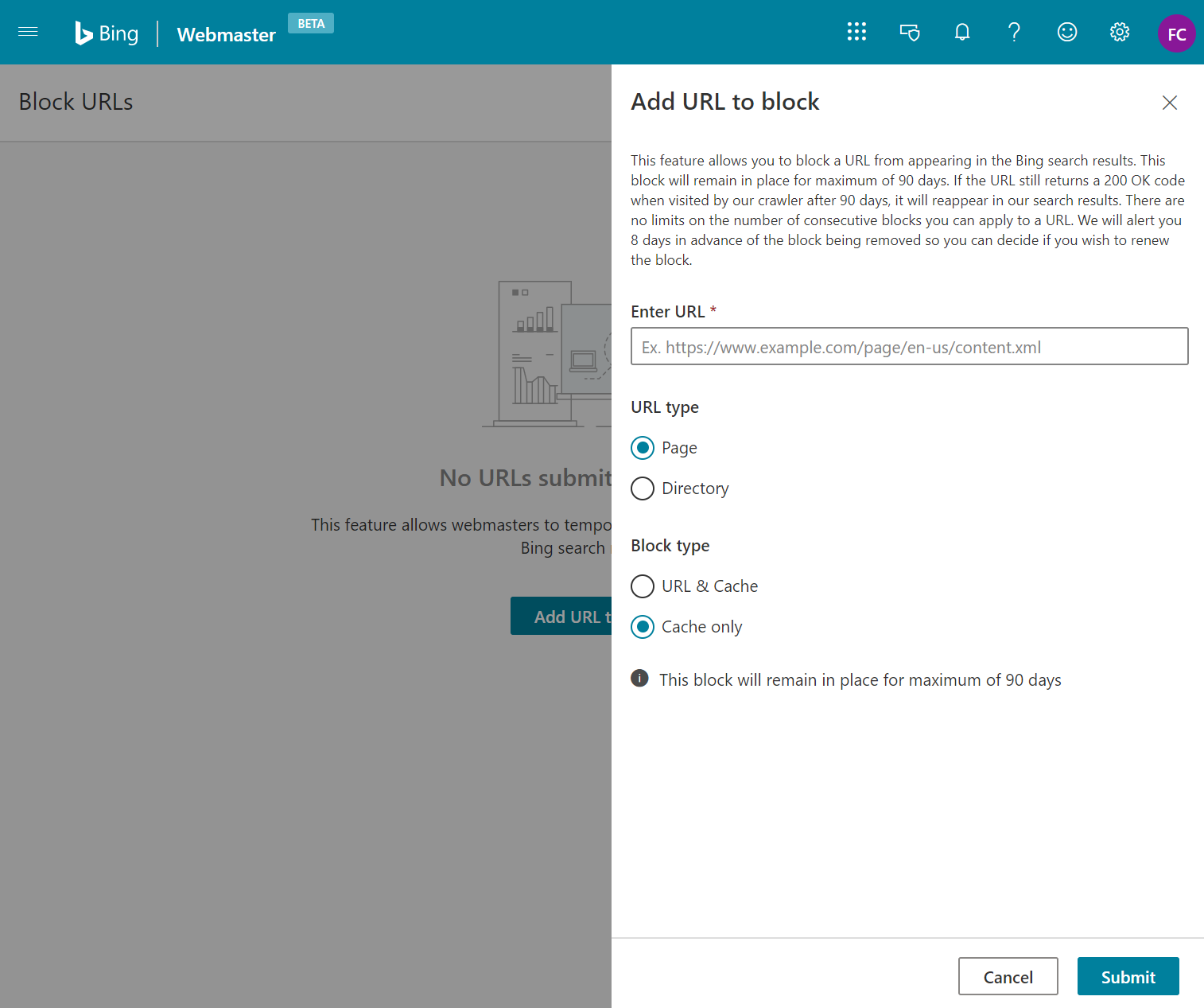
I hope you like the new Bing Webmaster Tools portal so far.
During the next few months, we plan to migrate all remaining tools and enable new ones.
We’d love to hear from you and get your feedback. Tweet to us with your thoughts at @BingWMC.
More Resources:
- How Bing Ranks Search Results: Core Algorithm & Blue Links
- How Bing’s Whole Page Algorithm Works
- How Bingbot Works: Discovering, Crawling, Extracting & Indexing
Image Credits

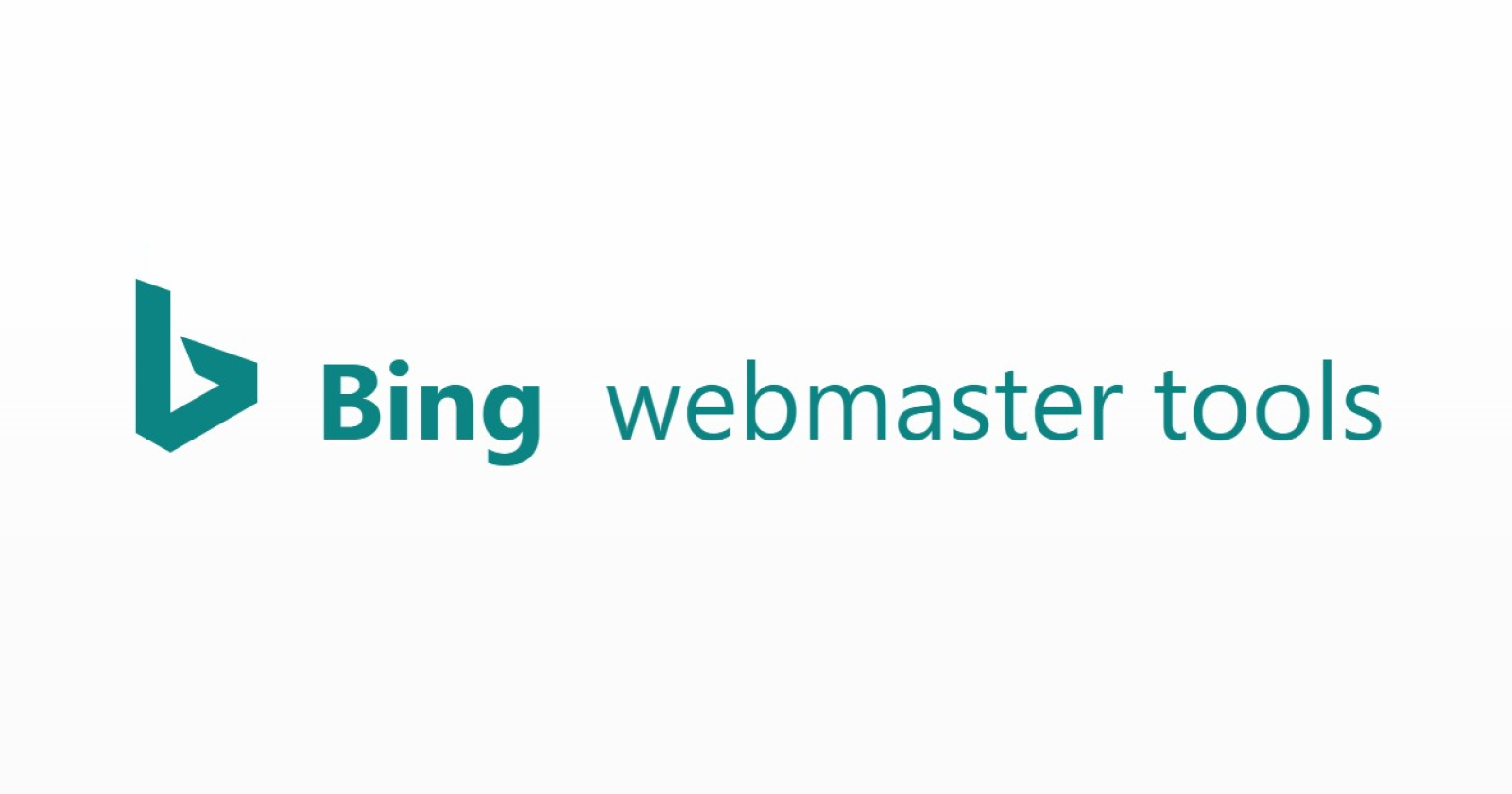



![AI Overviews: We Reverse-Engineered Them So You Don't Have To [+ What You Need To Do Next]](https://www.searchenginejournal.com/wp-content/uploads/2025/04/sidebar1x-455.png)